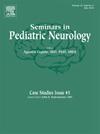宣传和私人基金会在资源有限地区改善癫痫治疗方面的影响
IF 2.1
4区 医学
Q2 CLINICAL NEUROLOGY
引用次数: 0
摘要
在资源有限的国家,癫痫治疗面临着许多挑战,包括获得抗癫痫药物有限、卫生保健基础设施不足和社会污名化。宣传工作和私人基金会在解决这些障碍和改善癫痫治疗结果方面发挥着至关重要的作用。已经出现了侧重于临床护理、研究、教育和宣传的全球卫生项目,以解决低收入和中等收入国家在癫痫治疗方面的巨大差距。这些合作举措旨在制定可持续的解决办法,例如加强边缘化社区的癫痫护理,并实施战略,以缩小治疗差距和改善获得卫生保健的机会。利用初级保健人员确定癫痫病例并制定简单的治疗方案,有望解决发展中国家专业医疗人员短缺的问题。倡导和私人基金会的重点是教育卫生保健提供者,提高公众意识,改善药物供应,并制定具有成本效益的癫痫手术方案。然而,挑战仍然存在,包括需要针对具体国家进行评估,并制定综合癫痫护理模式,考虑到该病的异质性及其对患者、家庭和社区的影响。本文章由计算机程序翻译,如有差异,请以英文原文为准。
Impact of advocacy and private foundations in improving treatment of epilepsy in resource limited regions
Epilepsy treatment in resource-limited countries faces numerous challenges including limited access to antiepileptic drugs (AEDs), inadequate healthcare infrastructure, and social stigma. Advocacy efforts and private foundations play a vital role in addressing these barriers and improving epilepsy care outcomes. Global health projects focusing on clinical care, research, education, and advocacy have emerged to address the significant epilepsy treatment gap in low- and middle-income countries (LMICs). These collaborative initiatives aim to develop sustainable solutions, such as enhancing epilepsy care in marginalized communities and implementing strategies to mitigate treatment gaps and improve access to healthcare. The use of primary healthcare personnel to identify epilepsy cases and initiate simple treatment protocols has shown promise in addressing the shortage of specialized medical professionals in developing countries. Advocacy and private foundations focus on educating healthcare providers, increasing public awareness, improving drug availability, and developing cost-effective epilepsy surgery programs. However, challenges remain, including the need for country-specific assessments and the development of comprehensive epilepsy care models that consider the heterogeneity of the disorder and its impact on patients, families, and communities.
求助全文
通过发布文献求助,成功后即可免费获取论文全文。
去求助
来源期刊

Seminars in Pediatric Neurology
CLINICAL NEUROLOGY-PEDIATRICS
CiteScore
4.80
自引率
0.00%
发文量
38
审稿时长
84 days
期刊介绍:
Seminars in Pediatric Neurology is a topical journal that focuses on subjects of current importance in the field of pediatric neurology. The journal is devoted to making the status of such topics and the results of new investigations readily available to the practicing physician. Seminars in Pediatric Neurology is of special interest to pediatric neurologists, pediatric neuropathologists, behavioral pediatricians, and neurologists who treat all ages.
 求助内容:
求助内容: 应助结果提醒方式:
应助结果提醒方式:


